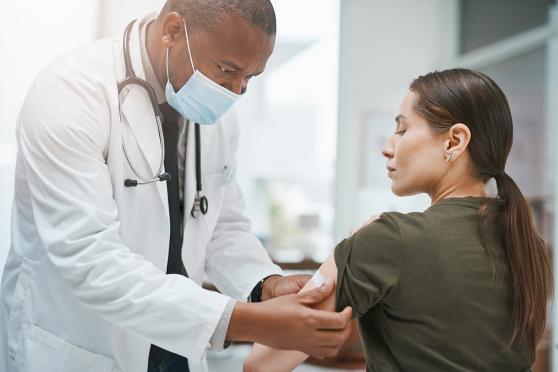What depression looks like at every age
The signs and symptoms of depression are often different in children, teens, adults, and seniors. And sometimes, they’re easy to miss. Here’s what to look for.

Genetics. Stressful life events. Some medications. Levels of certain brain chemicals. Even chronic conditions. Any one or a combination of these things can play a role in depression, so it makes sense that it affects so many people.
The good news is once it’s identified, depression is highly treatable. In fact, the American Psychiatric Association cites depression as one of the most treatable mental health conditions. That’s why it’s important to know what the signs and symptoms are for each age group. Here’s what medical experts want you to know.
What is depression?
Depression is defined as a sad or low mood and a lack of interest in everyday activities that lasts for two weeks or more, says New York City–based psychiatrist Dennis M. Popeo, M.D. It can look different in different people and age groups. But one thing is true for everyone: Treatment is really important.
That’s because depression doesn’t only affect your mind or mood. Over time, it can also harm your physical health. People with depression may have:
- Appetite changes that lead to unintended weight gain or loss.
- Trouble sleeping or sleeping too much.
- Less energy and more fatigue.
- A higher risk for diabetes complications.
- A harder time recovering from heart attack. Also, a higher rate of death from heart attack.
- A higher risk of suicide.
In order to get treatment, you must be diagnosed. That calls for knowing the signs and symptoms of depression. Some are common across all age groups. Big changes in eating habits, sleeping patterns, and weight are a common sign of depression at every age. Pulling away from social activities and losing interest in things that you used to enjoy are others. But there are other clues that are more unique to different age groups. Here’s what to look for.
Depression in children
If a child in your life is more argumentative, grouchy, or easily annoyed than usual, they could be demonstrating signs of depression. They may seem more tired, surprisingly agitated, and may have trouble concentrating in school. Other signs of depression in children may include:
- Feeling inadequate, guilty, or worthless.
- Self-injury or self-destructive behaviors.
- Angry outbursts or tantrums.
It’s important to note that children struggling with depression may cover it up very well. Talking with your child’s doctor about options for therapy could make a big difference in both your child’s life and in your family dynamic.
Depression in teenagers
Grades dropping? Energy levels low? These and other changes in a teen’s behavior could be symptoms of depression. If a teenager in our life comes across as lacking in motivation or simply not at all enthusiastic, especially about things that used to interest them, it’s worth a conversation with their doctor.
Other signs of depression may include the following:
- Often restless or agitated.
- Overreacting to criticism.
- Using substances like alcohol or drugs.
- Poor self-esteem.
- Not taking care of their appearance.
If you’re concerned your child or teen is thinking or talking about suicide, be sure to take action immediately and contact your family physician for advice on next steps.
Depression in adults
Adults with a personal or family history of depression or anxiety are more likely to go through depression than those without one. Negative life events, such as a divorce or job loss, may also raise their risk. And sometimes, positive events may trigger depression, too. (Think: becoming a new parent or seeing your child off to college.)
Remember, depression symptoms aren’t the same for everyone. One adult might feel sluggish and exhausted. Another might sign up for a ton of activities, hoping to distract from how they’re feeling. In addition to big changes in sleeping, eating, and weight, and loss of interest in socializing and hobbies, symptoms of adult depression can include:
- Having a depressed mood for most of the day. This can come across as being sad, hopeless, discouraged, annoyed, frustrated, irritable, and/or angry.
- Being fatigued and low energy. Also, having trouble starting or completing things.
- Feeling restless, agitated, or sluggish.
- Feeling worthless or very guilty. This can include feeling inadequate, inferior, and like a failure.
- Having a hard time concentrating, thinking clearly, remembering things, and making decisions.
- Having thoughts of self-harm, which may include suicide.
If you or someone you know has had four or more of these symptoms for at least two days a week during a two-week period, depression might be the cause. As with teens, untreated depression can lead adults to unhealthy coping strategies, such as substance use.
Depression in older adults
“A lot of people mischaracterize their depression as a normal part of getting older,” says Dr. Popeo. “But depression is not a normal part of aging.” Instead, some issues that are more common as we age may be at play. Some examples:
- Developing a medical condition (such as a stroke or cancer).
- Loss of mobility.
- Social isolation.
- Sleep problems.
- Caring for a sick or injured loved one.
Often, “there isn’t one specific thing,” says Dr. Popeo. Instead, several factors can contribute to an older adult’s depression.
The signs of depression in older adults are similar to those of other adults. They also include:
- Feeling hopeless, helpless, or anxious.
- Worrying that something is wrong, but being unable to explain it to a doctor.
- Having more confusion and attention issues.
- Having more frequent aches and pains (for example, headaches and digestive problems).
- Crying often.
Diagnosing depression in older adults can be a challenge. They may have other health issues that cause depression-like symptoms. Or a health issue may put them at greater risk for depression. Talking to a health care provider can help untangle what's going on.
Getting treatment is key to improving an older adult’s quality of life and health. Older adults are more likely to develop a physical illness when they have depression, according to the National Institute of Mental Health (NIMH).
Settling on the right treatment plan can take time and patience. Older adults tend to be more sensitive to medication side effects, according to the NIMH. They may need lower or less frequent doses of antidepressants. At the same time, they’re more likely to miss a dose or take too much. And older people are more likely to be juggling multiple conditions and medications. This puts them at risk for drug interactions.
The NIMH advises older adults to get all their prescriptions at the same pharmacy. That way, the pharmacist can help flag any possible drug interactions. The pharmacist will also want to work closely with the doctor to track medications and how well they’re working. In fact, sticking with one pharmacy is great advice for all ages. More support is a good thing!
Postpartum depression
It’s worth noting another, sometimes overlooked area of depression: postpartum depression. While postpartum depression is most common in the first three months after giving birth, some women experience it up to a year later. According to the U.S. Department of Health & Human Services Office on Women’s Health, about one out of nine new mothers will experience postpartum depression.
Symptoms of postpartum depression can include:
- Feeling overwhelmed.
- Feeling a sense of emptiness.
- Feeling a detachment from the baby.
- Panic attacks.
- Decreased interest in activities.
- Feelings of guilt, anger, or self-doubt.
- Sometimes postpartum depression is accompanied by changes in sleep or eating.
Getting to a healthy place
If you’re seeing signs like the ones listed above, you, or your loved one may benefit from talking with your health care provider or a mental health professional. They can provide the support you need or point you in the right direction to a better, and happier, tomorrow.


